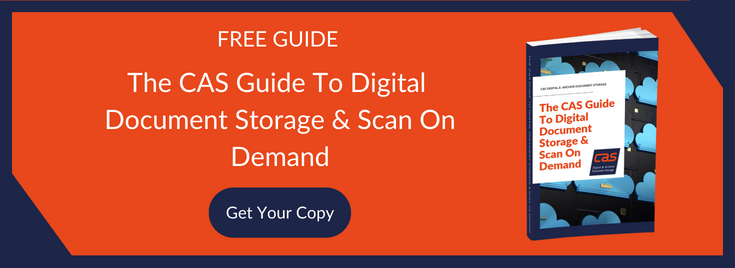Security and legality are paramount when storing your confidential medical records. Whether your files are digitised or printed, you have an ethical and statutory duty to keep all the sensitive data that's entrusted to you safe, user-limited, and deletable on request.
 Cramped surgeries and offices often try to save space by using standard-tier, online cloud storage services to archive their documents. However, Google Docs, OneDrive, and Dropbox etc have significant data protection drawbacks for medical records. Here's why you should always exercise extreme caution while choosing your confidential data storage provider.
Cramped surgeries and offices often try to save space by using standard-tier, online cloud storage services to archive their documents. However, Google Docs, OneDrive, and Dropbox etc have significant data protection drawbacks for medical records. Here's why you should always exercise extreme caution while choosing your confidential data storage provider.
The GDPR And Cloud Services
If you create any medical records as a business or medical practice, you must have the following GDPR-compliant procedures in place:
- The explicit permission of the patient (and any relevant third-parties) to store their data
- Industry-standard digital protection against hacks and data misuse
- A named data protection officer
- Named, dedicated data storage locations
- The ability to immediately delete, present intact, and modify all relevant records on patient request
- Need-to-know, agreed-on access to confidential files
- Anonymised metadata processing
- A timeout plan for when the medical records are no longer relevant or legal to keep
Cloud services often struggle to provide the security and dedicated service needed to meet these criteria. Although it may be tempting to consider the advantages of fast additions to a centralised database with everything on it, it's almost certainly not worth the risks involved.
Google and Dropbox guarantee none of these criteria. It's far better to use dedicated, login-limited providers who specialise in restricted, data storage and understand the GDPR requirements involved in standard medical practice.
The Downsides Of Open Access
While they're great tools for sharing collaborative, open projects such as presentations between offices, the sheer openness of cloud platforms become a liability in the context of medical data. Medical records offer lucrative opportunities to low-skill hackers looking to sell information, convincingly impersonate patients, or engage in personal blackmail.
Unintentional breaches via drive access links, mislaid or copied files, and login credentials leave you vulnerable to fines, prosecution, and loss of reputation. Handing out more logins and permissions to many members of staff also reduces the confidentiality of your patients while leaving you open to 'inside job' hacks.
It's worth keeping in mind that many employees are lax with their home and office IT security, too. Too many users across too many devices is an inherent risk. Using a dedicated offline paper storage service allows for better management of who can access, delete, and modify your critical files.
Data Leaks And Hacks - Your Public Liabilities
What if you're sensible and limit your cloud inputs and retrieval to just one account and user? A good strategy - but you still run severe risks by using an extremely well-known public service to work with sensitive material.
Database breaches often expose vital credentials through no fault of the users who've placed their trust in the service's inadequate security measures. In recent years, public cloud storage providers have suffered huge losses through hacks.
Why? Simply because they're sprawling, obvious, juicy targets that are known globally to cybercriminals, with many weak points of entry to their infrastructure. In particular, the infamous 2016 Dropbox password database heist and the 2017 Google Docs malware phishing attacks left hundreds of thousands of personal and business accounts exposed.
Safe Medical Record Storage From CAS Ltd.
If in doubt, trust CAS. We're experienced administrators of locked physical data storage, secure data digitisation, and permanent record disposal for our many medical, dental, and surgical clients. Paper or digital, we have the services you need to stay GDPR-compliant and safe. Get in touch to learn more about our secure warehousing and long-term, personalised data retention and disposal plans. Image Source: Canva
Image Source: Canva
.jpg)